Mark Anson-Cartwright is Assistant Professor of Music Theory at Queens College and The Graduate Center, City University of New York. His articles on the music of Bach, Haydn, Mozart, Beethoven, Wagner and Wolf have appeared in various journals, including Music Analysis , Music Theory Spectrum , Journal of Music Theory and Dutch Journal of Music Theory . He is currently doing analytical research on the vocal music of Bach.
Mark Evan Bonds is the Cary C. Boshamer Distinguished Professor of Music at the University of North Carolina at Chapel Hill, where he has taught since 1992. He holds degrees from Duke University (BA), Christian-Albrechts-Universitt Kiel (MA) and Harvard University (Ph.D.). His books include Wordless Rhetoric: Musical Form and the Metaphor of the Oration (1991), After Beethoven: Imperatives of Symphonic Originality (1996) and Music as Thought: Listening to the Symphony in the Age of Beethoven (2006). He has published essays on the music of Haydn and Mozart and is currently working on a history of the idea of absolute music.
David Brodbeck is Professor and the Robert and Marjorie Rawlins Chair of Music at the University of California, Irvine. He has published on a wide range of topics related to Brahms and other nineteenth-century German composers. His current research focusses on the intersection of music, politics and constructions of social identity in the reception of new music in late Hapsburg Vienna. Recent publications include Dvo

ks Reception in Liberal Vienna: Language Ordinances, National Property, and the Rhetoric of Deutschtum ( Journal of the American Musicological Society ), Hanslicks Smetana and Hanslicks Prague ( Journal of the Royal Musical Association ) and Ausgleichs-Abende : The First Viennese Performances of Smetanas Bartered Bride (in a special volume of Austrian Studies entitled Word and Music ).
Pauline Fairclough is Senior Lecturer in Music at the University of Bristol. She has published widely on Shostakovich and Soviet culture and is currently engaged on a study of Soviet concert repertoire. Books include The Cambridge Companion to Shostakovich (with David Fanning), Shostakovich Studies II and A Soviet Credo: Shostakovichs Fourth Symphony (2006).
David Fanning is Professor of Music at the University of Manchester and has a varied career as scholar, pianist and critic. Author and editor of books on Nielsen and Shostakovich, his ongoing research projects include a historical survey of the symphony in the Soviet Union and (with Michelle Assay) a completion of the late Per Skanss life-and-works study of the Shostakovich disciple, Mieczys

aw Weinberg, his 2010 book Mieczys

aw Weinberg: In Search of Freedom being a concise advance version of the Weinberg study. He is also active as critic for The Gramophone and the Daily Telegraph , and as a BBC broadcaster and public speaker. As a pianist he was for twenty-five years chamber-music partner of The Lindsays, the University of Manchesters quartet-in-residence, a role he has since continued with the Brussels-based Quatuor Danel.
Alain Frogley is Professor of Music History at the University of Connecticut; he has also taught at Oxford, Lancaster and Yale, and in 20056 was a Fellow of the American Council of Learned Societies. He has written on Beethoven sketches and performance history, and published extensively on the music of the late nineteenth and twentieth centuries, including two books on Vaughan Williams; he has also contributed entries to the revised New Grove dictionary. His most recent work includes research into the reception of British music in Nazi Germany, racial Anglo-Saxonism in music, and post-colonial studies in musicology. He is currently working on a book about music and the modern metropolis, centred on Vaughan Williamss A London Symphony . He has written and presented programmes for BBC radio and lectured at Carnegie Hall and the Kennedy Center.

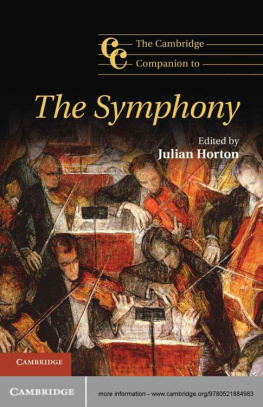
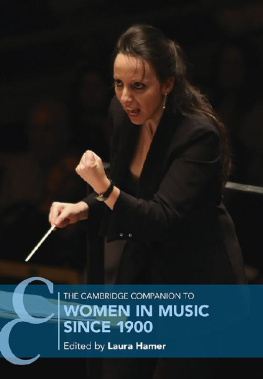
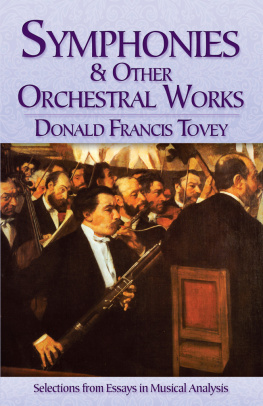
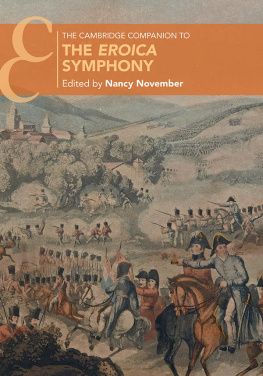
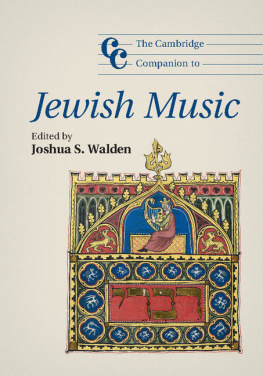
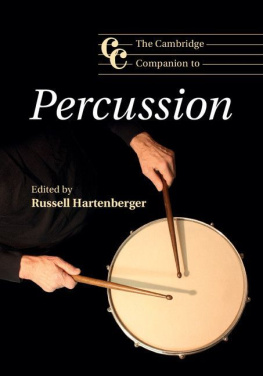
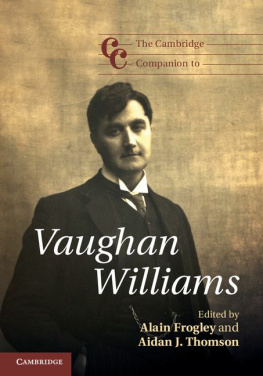
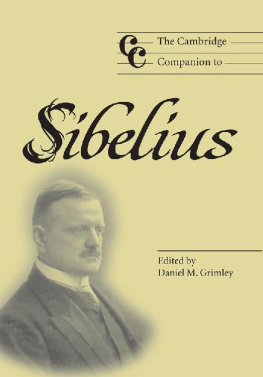


 ks Reception in Liberal Vienna: Language Ordinances, National Property, and the Rhetoric of Deutschtum ( Journal of the American Musicological Society ), Hanslicks Smetana and Hanslicks Prague ( Journal of the Royal Musical Association ) and Ausgleichs-Abende : The First Viennese Performances of Smetanas Bartered Bride (in a special volume of Austrian Studies entitled Word and Music ).
ks Reception in Liberal Vienna: Language Ordinances, National Property, and the Rhetoric of Deutschtum ( Journal of the American Musicological Society ), Hanslicks Smetana and Hanslicks Prague ( Journal of the Royal Musical Association ) and Ausgleichs-Abende : The First Viennese Performances of Smetanas Bartered Bride (in a special volume of Austrian Studies entitled Word and Music ). aw Weinberg, his 2010 book Mieczys
aw Weinberg, his 2010 book Mieczys